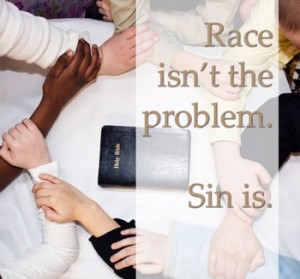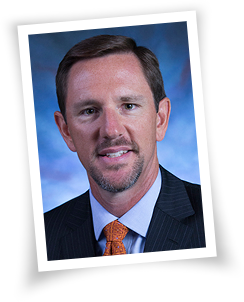This guest article from Jared Lafitte. He blogs at jaredlafitte.wordpress.com.
I went to college in the suburbs of Chicago, Illinois, and I loved it. Rooting for the Bears and the Cubs, eating pizza at Giordano’s and Gino’s East, hanging out downtown on the weekends… it was all a blast.
But as I spent time exploring our nation’s third-largest city, I began to see that it had deep dividing lines across socioeconomic classes, especially race. Nowhere was this more pronounced than in the churches.
 Martin Luther King Jr. once said, “It’s appalling that the most segregated hour in Christian America is 11:00 A.M. on Sunday morning.” Seeing this firsthand in Chicago’s suburban churches deeply affected me. I questioned how it was possible for Christians to say they loved God while preferring to be only with other Christians who were exactly like them. My heart ached to see a movement toward radical ethnic reconciliation and diversity in the churches of Chicago and beyond.
Martin Luther King Jr. once said, “It’s appalling that the most segregated hour in Christian America is 11:00 A.M. on Sunday morning.” Seeing this firsthand in Chicago’s suburban churches deeply affected me. I questioned how it was possible for Christians to say they loved God while preferring to be only with other Christians who were exactly like them. My heart ached to see a movement toward radical ethnic reconciliation and diversity in the churches of Chicago and beyond.
When I moved to Louisville, Kentucky to go to seminary, the opportunity to be a part of a movement like this presented itself. One of the first people I met was an African-American man named Jamaal Williams, who lived a few doors down from me. We quickly became friends, and when he took a leadership role at a local black congregation, Forest Baptist Church, I jumped at the opportunity to join.
As you can imagine, it wasn’t exactly a cakewalk for me to get adjusted. Forest Baptist was a nearly 150-year-old African-American church in a southern state. They had had white members in the past, but I was the only white person there at the time. The music and customs were different from what I was used to. Beside Jamaal, I didn’t know anyone. It was awkward, and I wrestled with feeling out of place. There were definitely weeks when I wanted to leave and go somewhere more comfortable. But I stayed because I wanted to see barriers demolished.
It was only a matter of time before it happened.
One ice-breaking conversation after another, I realized I had more in common with Forest’s members than I thought, and friendships began to form. Once we peeled back our fears and protective layers and cultural distinctions, we realized we weren’t very different at all.
The things my fellow congregants struggled with, things like relationships and cars that didn’t work and low-paying jobs, I struggled with. The things they wanted in life, things like healthy families and restored communities and seeing broken find joy in Jesus, I wanted. We went to movies and shared meals together. We played pick-up sports together. We shared our fears and struggles during rich conversations in each other’s homes. And Jamaal’s constant brotherhood was there to melt away any lingering insecurities I had.
Living life and sharing struggles day after day with a community of black people showed me that the human soul, in all its valleys and triumphs, is colorless. Fighting sin, loving God and loving others has nothing to do with skin and and everything to do with the heart.
I learned that the ethnic barriers we put between ourselves are like paper maché: they seem thick at first glance, but when you poke through them, there’s really nothing there. If you have Christ in common with someone, whatever you don’t have in common doesn’t matter so much.
I’m telling this story because I know what it takes to have true ethnic reconciliation in our churches. I’ve experienced it firsthand, and my dream is to see other churches experience this kind of ethnic unity as well.
But there’s a caveat.
If you start with the singular mission of tackling the race issue in your church, you’ll never get anywhere. I believe the reason most churches haven’t been able to tackle their lack of diversity is because they haven’t been hitting the root issue.
Race isn’t the problem. Sin is.
Ironically, the root of our racial tensions began before there were even racial divisions. In the Garden of Eden, Adam and Eve brought sin into the world by rejecting God and following their selfish desires. And ever since, sin has dictated human behavior, and ethnic division has been just one of many nasty variations we’ve spun out of our sinful, selfish hearts.
Sin, not race, makes us build walls and feel uncomfortable around people who aren’t like us. Sin makes us view people through our own selfish eyes instead of God’s eyes. It makes us divide ourselves according to things like wealth, ethnicity and education instead of uniting as people made in God’s image. Sin keeps us from seeing other people as people with hurts and hopes who will spend eternity either with God or apart from Him.
This means that merely asking Christians to spend more time with people of other races won’t change their sinful, comfort-seeking, division-making hearts. As long as we’re not challenged to search our hearts and be transformed by Jesus at the core, our prejudices, fears and insecurities will never fully go away. Calling our churches to ethnic diversity without calling them to heart change is as futile as stapling oranges to an apple tree and calling it an orange tree. Without radical heart change, even if we do manage to make our churches become multi-ethnic, our sinful hearts will find other ways to divide. What good is ethnic diversity if all the rich black and white people feel uncomfortable around the poor black and white people?
What we desperately need is for Jesus to pierce through our sinful condition and change us at the core so we can see people the way He does. We need Him to go deeper than our fears, deeper than our passion for self and deeper than our endless personal categories and divisions and give us true love for other human beings. We need Him to completely reshape the way we view people.
Outside of the power of the gospel, nothing else will accomplish this. You can’t psych yourself into seeing people as God sees them. He has to replace our stony, selfish hearts with hearts passionate for His glory and compassionate toward others.
As I’ve spent time with my black brothers and sisters in Christ at Forest Baptist Church, this is what has happened in my heart and in theirs. We are brothers and sisters in Christ, and as we live life together under the glorious banner of the gospel, race is an afterthought. My church sees me as a Christian more than as a white man.
One day, in the new heaven and new earth, where people from every nation, tribe and tongue will worship God together. Ethnic fear and racial barriers will be gone forever, and people will have a simple, common focus: the glory of God and the endless pleasure we’ll share together. This is what I, as a white man, look forward to along with my African-American brothers and sisters as we worship God every Sunday. We’re learning to put our focus on Jesus and not ourselves. This is where our unity finds its home.
Thurgood Marshall, our nation’s first African-American Supreme Court justice, called our nation to reject apathy and moral failure and racial division in his famous 1992 Liberty Medal acceptance speech. In it he explained, “America has no choice but to do better.”
How much more does this call apply to our churches, and to us?

